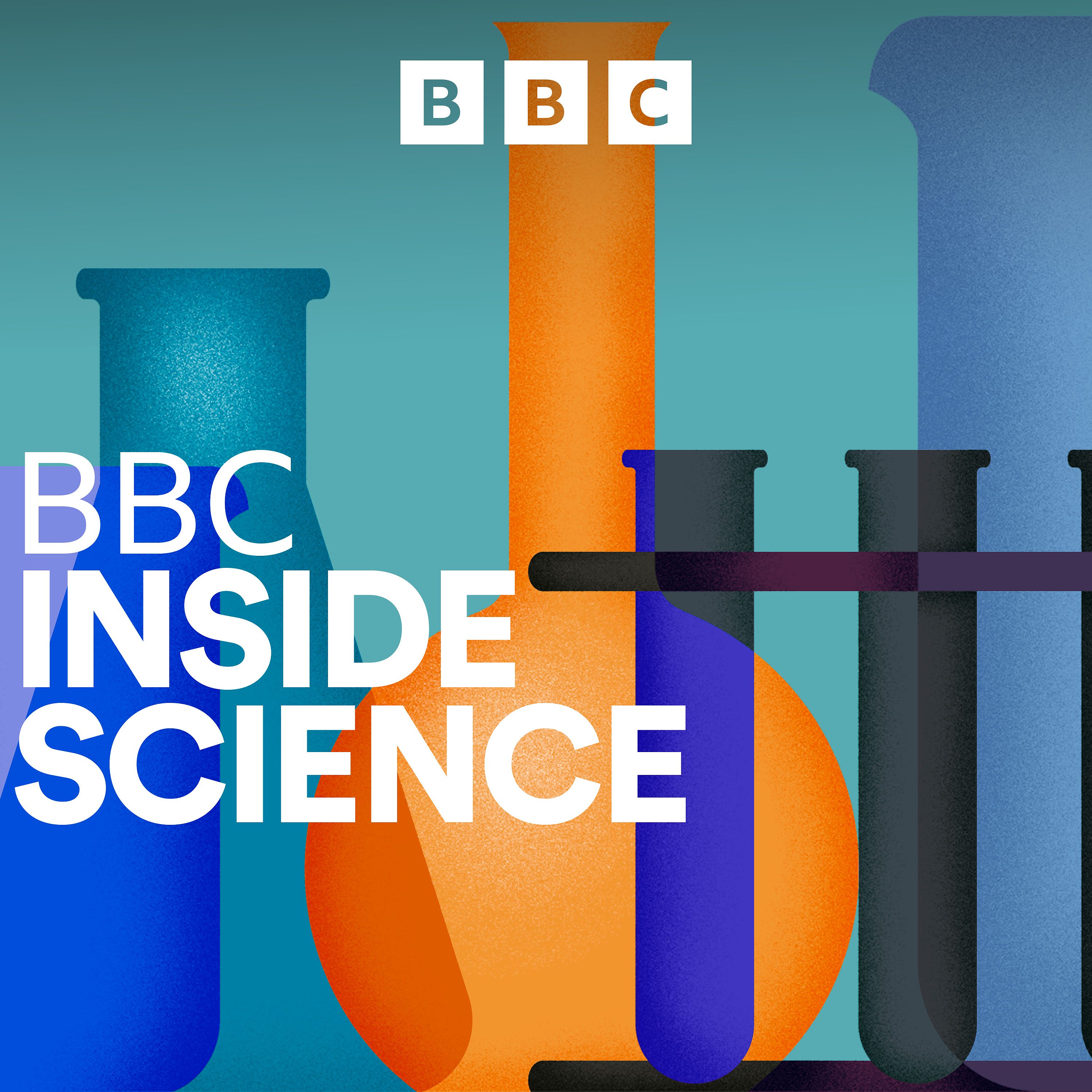

BBC Inside Science
BBC Radio 4
A weekly programme that illuminates the mysteries and challenges the controversies behind the science that's changing our world.
Episodes
Mentioned books

14 snips
Jun 26, 2025 • 28min
Your science questions answered
Join Mark Maslin, a climate change expert, Catherine Heymans, Scotland's Astronomer Royal, and Penny Sarchet, managing editor of New Scientist, as they tackle fascinating questions from listeners. Discover why the Moon is barren while Earth thrives with life. Delve into the mysteries of Tesla's free electricity theories. Learn about the potential for new organisms to evolve to consume microplastics, and the environmental impact of lithium-ion batteries. This lively discussion unearths scientific curiosities with humor and insight.

13 snips
Jun 19, 2025 • 28min
Does the pandemic agreement make the world safer?
Caroline Steel, a keen science expert, joins to unveil this week's intriguing scientific highlights. Global health journalist Andrew Green sheds light on the World Health Organisation's new treaty aimed at enhancing pandemic preparedness and ensuring equitable vaccine distribution. Meanwhile, artist Ersin Arasin discusses his mesmerizing digital installation at Kew Gardens, which creatively connects humans and nature. The conversation intriguingly blends health, technology, and art, offering hope for a safer future.

14 snips
Jun 12, 2025 • 28min
Will the Hole in the Ozone Layer Close?
Gareth Mitchell, a broadcaster and science communication lecturer at Imperial College London, discusses the shrinking ozone layer and new pollutants from space travel threatening its recovery. Joined by Professor Eloise Marais, they analyze the complexities of monitoring atmospheric changes. The conversation shifts to seasonal water quality testing led by Roger Pickup, emphasizing safe swimming. Lastly, Dr. Sarah Scott warns that improperly planted wildflowers may harm bumble bees, highlighting the intricate balance of environmental protection.

62 snips
Jun 5, 2025 • 28min
The mysteries of the ocean floor
In this engaging discussion, guests David Edgerton and Penny Sarchet delve into the mysteries of the ocean floor and the historical ties between science and warfare. Edgerton, a professor at King's College London, reveals how World War II influenced scientific research. Sarchet, Managing Editor at New Scientist, highlights the week’s top science stories. The duo also reflects on the staggering fact that 99.999% of the deep sea remains unexplored, calling for more initiatives to unlock its secrets. They celebrate David Attenborough’s legacy as he turns 99, marking his impact on nature.

17 snips
May 29, 2025 • 28min
How vulnerable is our power supply?
In this intriguing discussion, science journalist Caroline Steel joins experts Keith Bell and David Brayshaw to unravel the recent power outages in Spain and their implications for the UK's power supply. They dive into the vulnerabilities of electrical grids amid rising energy demands and climate challenges. The conversation even takes a fascinating turn with cyborg cockroaches aiding disaster rescue operations and a focus on the remarkable regeneration abilities of the critically endangered axolotl, hinting at potential breakthroughs for spinal cord repair.

7 snips
May 22, 2025 • 30min
What would cuts to Nasa mean for space science?
Tim O'Brien, a Professor of Astrophysics at the University of Manchester, dives into the impacts of proposed budget cuts to NASA. He discusses how a potential 20% reduction could jeopardize critical projects, including the Mars Sample Return mission. The conversation also highlights groundbreaking discoveries of chemical signals from distant exoplanets, signalling progress in the search for alien life. Additionally, O'Brien points to the upcoming close approach of asteroid Apophis, showcasing international collaboration efforts to enhance planetary defense.

14 snips
May 15, 2025 • 28min
Answers to Your Science Questions
Join Catherine Heymans, Astronomer Royal for Scotland, Mark Maslin, climate expert, and Penny Sarchet, Managing Editor at New Scientist, as they tackle burning science questions. Discover why planets are round and how geese communicate in flight. They also delve into climate change tipping points, emphasizing the urgency of international action to prevent catastrophic shifts, and unravel the mystery of why garden snails ascend buildings. Plus, find out why your laundry gets trapped in duvet covers, blending humor with science!

11 snips
May 8, 2025 • 35min
How can science help us fight wildfires?
Jack Ashby, Assistant Director at the University Museum of Zoology, sheds light on the critical role of natural history museums in biodiversity and climate research. Caroline Steel, a science journalist, discusses the rising trends and science behind wildfires as they become more frequent due to climate change. The conversation touches on firefighting technology and strategies, as well as unique museum specimens that help us understand the ecological impact of our changing world. It's a captivating exploration of science at the intersection of nature and crisis.

39 snips
May 1, 2025 • 28min
Is this finally the moment for UK tidal power?
In this engaging discussion, Andrew Garrad, Chair of the Severn Estuary Commission and expert in tidal energy, explores the potential for tidal power in the UK, highlighting new plans for a tidal lagoon in the Severn Estuary. Caroline Steel, a science journalist, shares intriguing science news, including a revolutionary blood test for Alzheimer's and the controversy surrounding the innovative 'Torpedo Bat' in baseball. They also touch on geological phenomena such as supershear earthquakes. Together, they uncover the exciting intersection of science and technology.

15 snips
Apr 24, 2025 • 28min
Is everything we know about the universe wrong?
Catherine Heymans, Scotland's Astronomer Royal and a leading astrophysics professor, discusses groundbreaking revelations about dark energy and its impact on the universe. She explores the recent findings from the Dark Energy Spectroscopic Instrument, challenging long-held assumptions and raising profound questions about existence. The conversation also touches on the intriguing analysis of the Winchcombe meteorite and its significance for understanding water's origins on Earth, blending cosmic mysteries with ancient discoveries.


